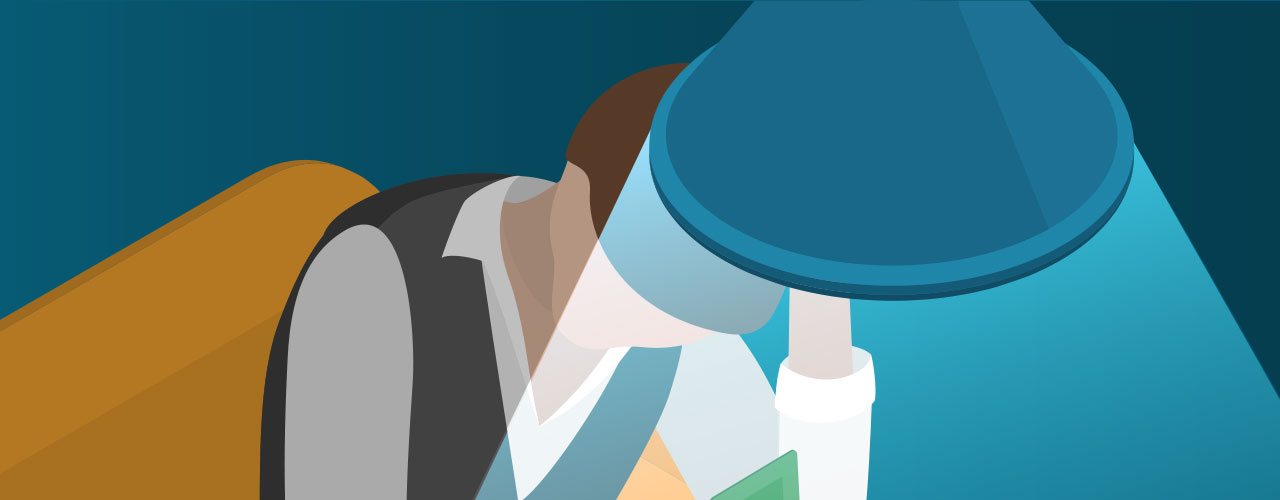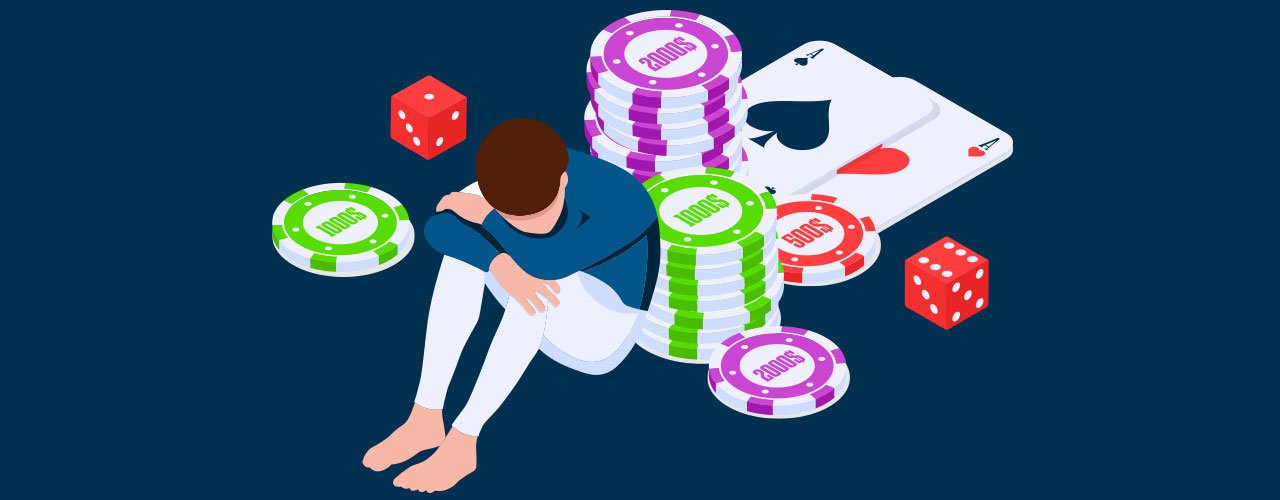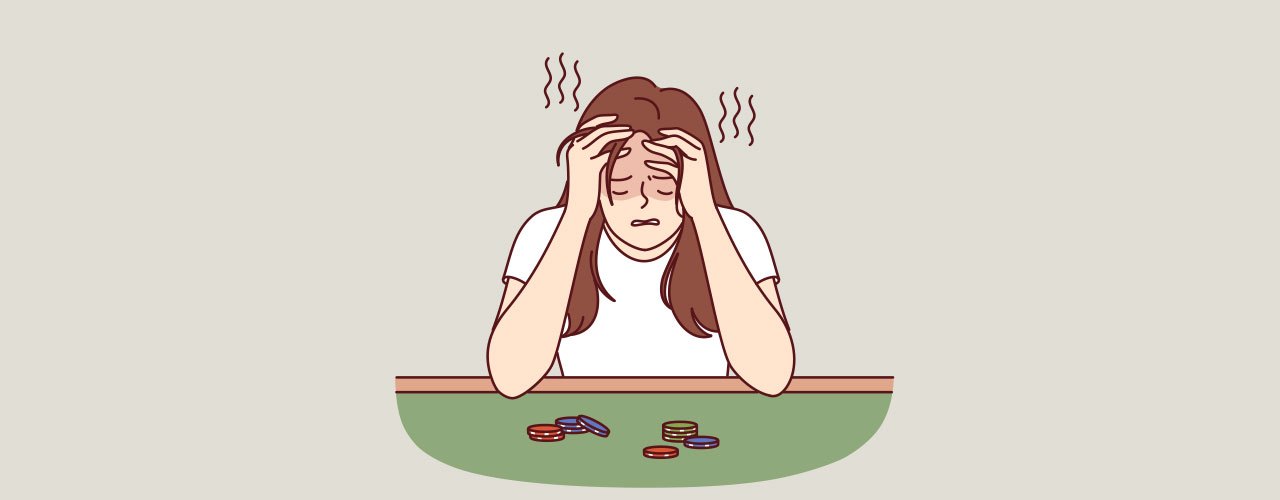Responsible Gambling
The majority of people who gamble do so with no issues. But the very nature of gambling, combined with its accessibility these days, means it’s all too easy to develop a problem or even an addiction. Understanding the concept of responsible gambling can help to avoid that.
Gambling responsibly and safely is essential if you want a fun and enjoyable experience. In this guide, we provide the information and advice you need to maintain a healthy relationship with gambling. We also explain what to do if gambling starts becoming a problem.
Editor's Note
If you suspect you have or are developing a gambling problem, the time to act is NOW. Stop gambling immediately, talk to someone about your concerns, and start getting the help you need.
What Is Responsible Gambling?
Responsible gambling is ultimately about making informed and smart decisions. You should think carefully about the amount of time and money you spend on gambling, and manage your activities accordingly. Never spend more money than you can afford or are comfortable losing, and never let gambling take over your life.
The two main principles to bear in mind are as follows:
- Self-Control: You need to be disciplined to ensure your gambling habits do not become excessive.
- Awareness: You need to be mindful of your gambling behaviours and how they might be affecting other parts of your life or people that matter to you.
By staying aware and in control, you maximise your chances of enjoying a safe and entertaining gambling experience. That’s not necessarily as easy as it sounds, of course, but it’s very important to try. We have some advice to help with this.
How to Gamble Responsibly
The following tips are fairly straightforward, and perhaps even obvious. That doesn’t affect their usefulness, though.
Here’s what we recommend doing:
- Treat Gambling as a Form of Entertainment: Winning is great, but that shouldn’t be your primary reason for playing. You should play for fun, and view any losses as the cost of that fun.
- Set Spend Limits: Decide in advance how much you are willing to spend per session, day, week or month. Then stick to whatever limits you set.
- Spend According to Finances: Your spending limits should reflect how much you can afford or are willing to lose. Make sure they’re sensible and don’t use money needed for essentials.
- Avoid Chasing Losses: When money is lost, it’s lost. Don’t gamble more money than you planned trying to win it back.
- Set Time Limits: Each time you play, decide how long you’re going to play for. Stop when your time is up, regardless of whether you’re winning or losing.
- Take Regular Breaks: Take breaks from long sessions and make sure you have plenty of days where you don’t even think about gambling.
- Consider Your Mood: Gambling when angry, stressed, or upset is never a good idea. You should only gamble when you’re in a good state of mind.
- Stay Sober: Any substances that affect your judgement should be avoided when gambling. They can lead to bad decisions and a lack of control.
For more comprehensive advice, check out our guide to gambling safely and responsibly.
Online Casinos and Responsible Gambling
Online casinos and other gambling sites have both moral and regulatory obligations when it comes to responsible gambling. It’s down to you to ensure you make good decisions, but the casinos should provide an environment that makes that as easy as possible.
Here are some of the measures online casinos take to promote responsible gambling:
- Age Verification: Processes such as Know Your Customer help casinos prevent underage people from accessing their services.
- Behaviour Monitoring: Sophisticated technology allows casinos to monitor player activity and identify signs of problem gambling. They can then offer support or restrict access.
- Player Tools: Tools like session limits, deposit limits, and self-exclusion allow players to manage their activity.
- Support Services: Staff who are trained in dealing with problem gambling can offer direct help and support to players.
We explain more about these measures, and how to evaluate them, on our page about responsible gambling practices at online casinos.
How to Recognise a Gambling Problem
A gambling problem isn’t always immediately noticeable. It can creep up on you and slowly spiral until it becomes a major issue. This is why it’s important to keep your gambling habits under constant review and be alert to the possibility of them getting out of control.
There are a few common signs that your gambling may be becoming problematic.
Here’s what to look out for:
- Preoccupation With Gambling: Constantly thinking about gambling and when you’re next going to play.
- Increasing Stakes: Needing to bet larger amounts to get any kind of excitement.
- Difficulty Stopping: Finding it hard to walk away from a session, or cut back your gambling overall.
- Withdrawal Symptoms: Feeling irritable or restless whenever you’re not gambling.
- Emotional Gambling: Gambling specifically to escape from problems or to relieve negative emotions.
- Deceptive Behaviour: Lying to people you know about your gambling activities.
- Neglecting Obligations: Ignoring your responsibilities at home or work due to gambling.
- Financial Issues: Having to borrow money for or because of gambling.
If you recognise any of these signs, do NOT dismiss them. Even if you genuinely don’t believe you have a problem, it’s time to reflect on your gambling activities and think carefully about the impact they may be having. Take a look at our page about early indicators of a gambling problem for more details on all the signs to watch for and what they might mean.
Be honest with yourself
You must be honest with yourself when assessing whether or not you may have a gambling problem. There’s nothing to be ashamed of and it’s better to deal with the issue than let it escalate even further.
Dealing With Problem Gambling
If you’ve identified that your gambling IS becoming a problem, it’s important to take immediate action. The sooner you address the issue, the sooner you’ll be able to fix it. Your road to recovery may be long and challenging, so you want to get started right away.
The first step is to stop gambling completely. This may not be easy, of course, but you’ve got to try. You need to take time to properly assess your situation and find the solutions you need. If you’re finding it impossible to stop by yourself, remember that there’s help available.
One of the best options to help with stopping is to exclude yourself from any online casinos you play at. This will mean you’re not able to deposit or play even if you want to. You can exclude yourself for a fixed period of time or permanently. To learn more, read our guide to self-exclusion at online casinos.
Important!
Excluding from an online casino doesn’t exclude you from ALL online casinos. Make sure you self-exclude at all casinos you have accounts with and try to resist the temptation to open new accounts with others.
You should also consider talking to someone. Don’t assume that friends and family are going to judge you, treat you differently, or give you a hard time. It’s more likely that they’ll be proud of you for admitting you have a problem and trying to deal with it.
Just talking things through with a friend or family member can bring a huge amount of relief. Even if they’re not able to offer any practical solutions, they can still provide support and solidarity. Once you’ve opened up, it may become easier to see things clearly and plan a way forward.
Professional help is available, too. Whether you have someone you know to talk to or not, you should consider reaching out to one of the many organisations that offer support for problem gambling and gambling addiction.
We’ve compiled a comprehensive list of problem gambling resources. It features contact information for many organisations around the world, along with other useful resources. These organisations all have hotlines and helplines that can give you the immediate support you need
You could also check out our guide to handling a gambling problem. We offer further advice to help you deal with your situation and work towards your recovery.
Helping Someone With Their Gambling Problem
Supporting someone with a gambling problem can be incredibly challenging. Especially if they’re not aware of their problem, or are in denial about it. It’s potentially a lot of responsibility to take on board, but your assistance could make a major difference and prevent a bad situation from getting worse.
If you suspect someone you know has a gambling problem and want to help them, you need to approach the situation with care. They may not be receptive to anything you have to say, as they are quite likely to feel embarrassed or ashamed. The most important thing is to talk to them calmly, and in private, and express your concerns.
Get professional advice if you need to
If you don’t get anywhere at all with someone you think has a gambling problem, you can’t force help and support on them. You might want to consider taking professional advice yourself, though. Problem gambling organisations are used to such scenarios and, if you explain the situation, they’ll offer some advice on the best actions to take.
Getting someone just to open up to you is only the first step. Whether you approached them or they approached you, you still need to tread carefully. You need to know when to listen and when to talk, which in itself can be difficult. Then you need to know WHAT to say.
There’s no “best” way to help, as it depends on the individual and the situation. It’s definitely important not to judge or criticise though. They’re probably feeling a lot of guilt already, and there’s no benefit in adding to that.
Our page detailing how to help someone with a gambling problem provides more comprehensive advice on what steps to take.
Summary
Gambling can be an enjoyable and entertaining activity when approached responsibly. By making informed decisions, setting clear limits, and staying mindful of your habits, you can ensure that your gambling remains a fun part of your life without negative consequences. Remember, maintaining self-control and awareness is key to enjoying a safe and positive gambling experience.
If you ever find yourself or someone you care about struggling with gambling, don't hesitate to reach out for help. There are numerous resources and organisations ready to support you on your journey to recovery. Taking proactive steps today can lead to a healthier and more balanced relationship with gambling tomorrow.
Stay informed, stay in control, and gamble responsibly.





